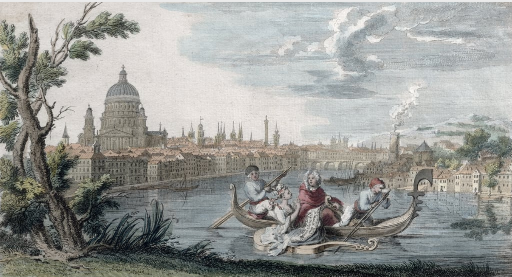
The 10th international conference at the Queluz National Palace is organized by the Centre de musique baroque de Versailles in partnership with the Centro de Estudos Musicais Setecentistas de Portugal, in the context of the Saison France-Portugal – Temporada Portugal-França promoted by the Institut Français and the Portuguese Prime Minister.
The circulation and the international exchange of composers, librettists, singers, musicians, theatrical architects, costume designers in 17th and 18th -century Europe modified the taste, creating new artistic expressions. Over the last decades this phenomenon has raised the attention of some important studies in the musicological field which brought new perspectives to understand the influences exerted by these transnational movements.
Considering the similarities of both institutions, which share the combination of research in music and theatre and performance studies and practice, the organizers intend to propose a conference aimed to contribute to improve the dialogue about the musical and theatrical migrations of the 17th and 18th centuries in Europe, with a focus on specific matters concerning the performance practice and its development. Investigations will also have to place emphasis on existing cultural ties between France and Portugal within the proposed temporal frame, either directly, or indirectly through the influences of third countries such as the Italian states, Austria, or other Mediterranean countries. Another primary aim of the conference is to concentrate the attention on the phenomenon of the contemporary circulation of the baroque repertoire.
Scientific board:
Barbara Nestola (CESR-CMBV), Iskrena Yordanova (CEMSP), Thomas Leconte (CMBV), José Camões (Universidade de Lisboa), Paologiovanni Maione (Conservatorio San Pietro a Majella, Naples)
*
Topics:
1. Transnational movements of musical and theatrical repertoires and artists (composers, singers, musicians, actors, scenographers, etc.). The reasons and forms for the adaptation to new contexts: aesthetical, linguistical, pragmatical circumstances and specific approach to the foreign realities.
2. The circulation of repertoires and artists between principal and peripheric centres of musical and theatrical production (and vice-versa), and how the artistic creation was adapted to specific performative spaces, according to the existing artistic, technical, political, or social differences.
3. The diplomacy as cultural outpost. Often artistic strategies destined to leave a legacy in the history of music and theatre, were defined through the exchanges of couriers. Ministers favored or promoted careers, made pieces of repertoire available to other audiences, and even supported practitioners in their difficult travels by planning profitable tours. They stood behind extraordinary artists and protected with their authority many stage performers, and carefully observed the cultural and musical life of the countries where they resided, transmitting precious information.
4. The musical training abroad: how the circulation of young artists, who received musical education in the main European centres, was influencing and changing the taste in their homeland.
5. Contemporary migrations of baroque and classical repertoire, exploring the circulation and adaptation to different publics in the global world, including the transcontinental migrations.
Registration procedures:
Scholars are invited to submit individual proposals. Each paper shall not exceed 20 minutes. Session proposals will be accepted as well: a maximum of three or four papers will be taken into consideration, and the session should not exceed 1h30.
Official languages of the conference are Portuguese, French, English, Italian and Spanish.
Abstracts in Word format (.doc), should not exceed 300 words.
Please enclose in the same file a brief curriculum vitae of 150 words max., providing your name and surname, postal address, e-mail and telephone number, as well as your institutional affiliation. Please indicate to which topic your proposal belongs.
Deadline for sending abstracts is March 1st, 2022.
E-mail : franceportugal2022@gmail.com
The scientific board will examine all the abstracts by March 10th, 2022 and contributors will be informed immediately thereafter.